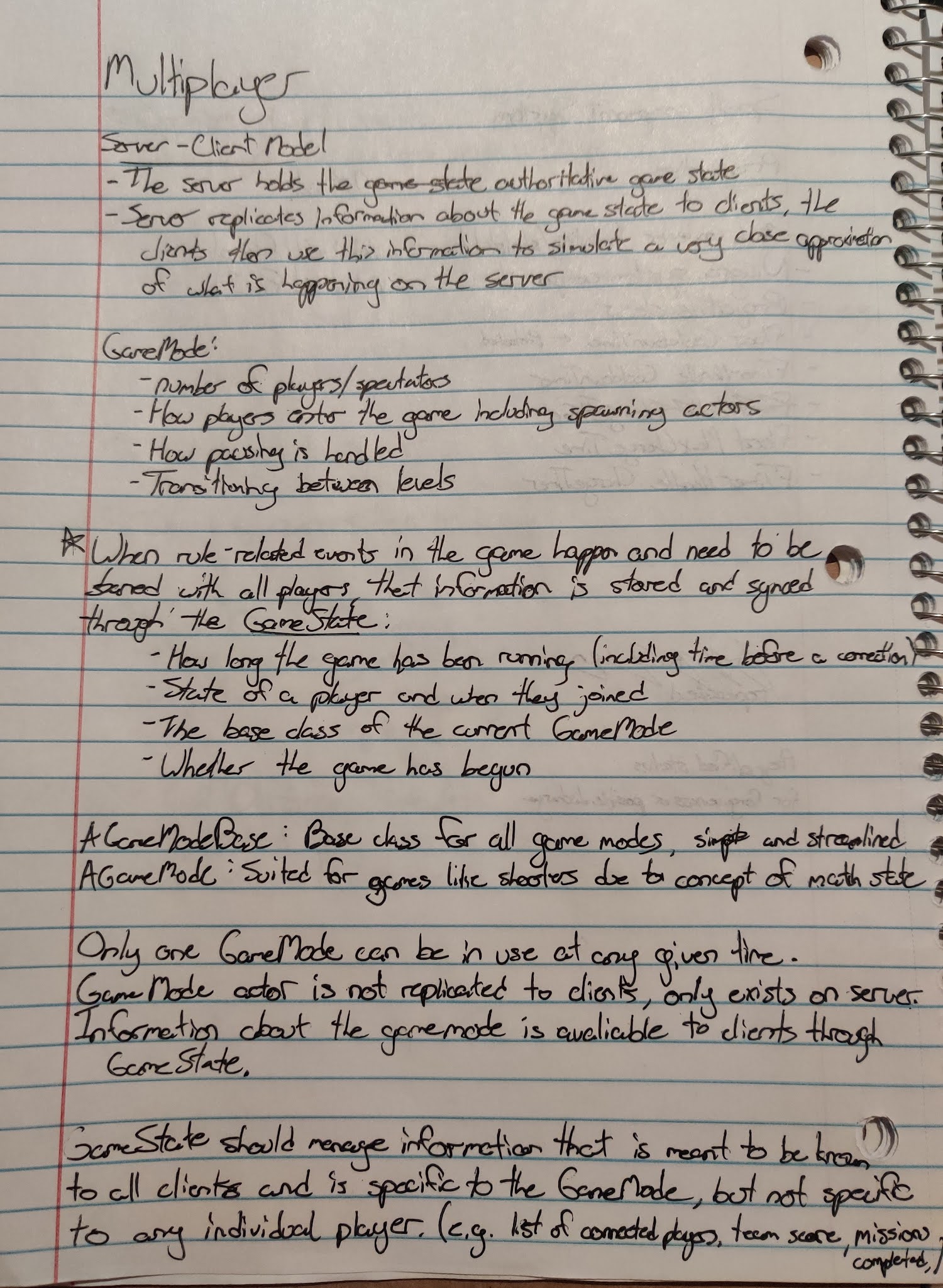A New Chapter

This week has presented the biggest change probably since the release of Mini Solar System; I was offered a full-time position as a junior programmer at Studio 369 which I was happy to accept. I start on Monday and I couldn't be more excited to work with the team there! However, this did mean though that my priorities shifted quite instantaneously. I went from working full-time on "RPG_Game" to preparing for this new job. This mainly meant getting up to speed on networking as that is the one area of Unreal Engine I feel I have a lack of knowledge in (I'm already proficient in UI, AI, gameplay, materials, and general backend work), and since 369's specialty is networking I figured I would come prepared. I did do a little work on "RPG_Game" but it was minimal just to tie up some loose ends. Unreal's Multiplayer Framework As explained by the Unreal Engine documentation, "multiplayer programming [is] inherently more complex than programmin...

